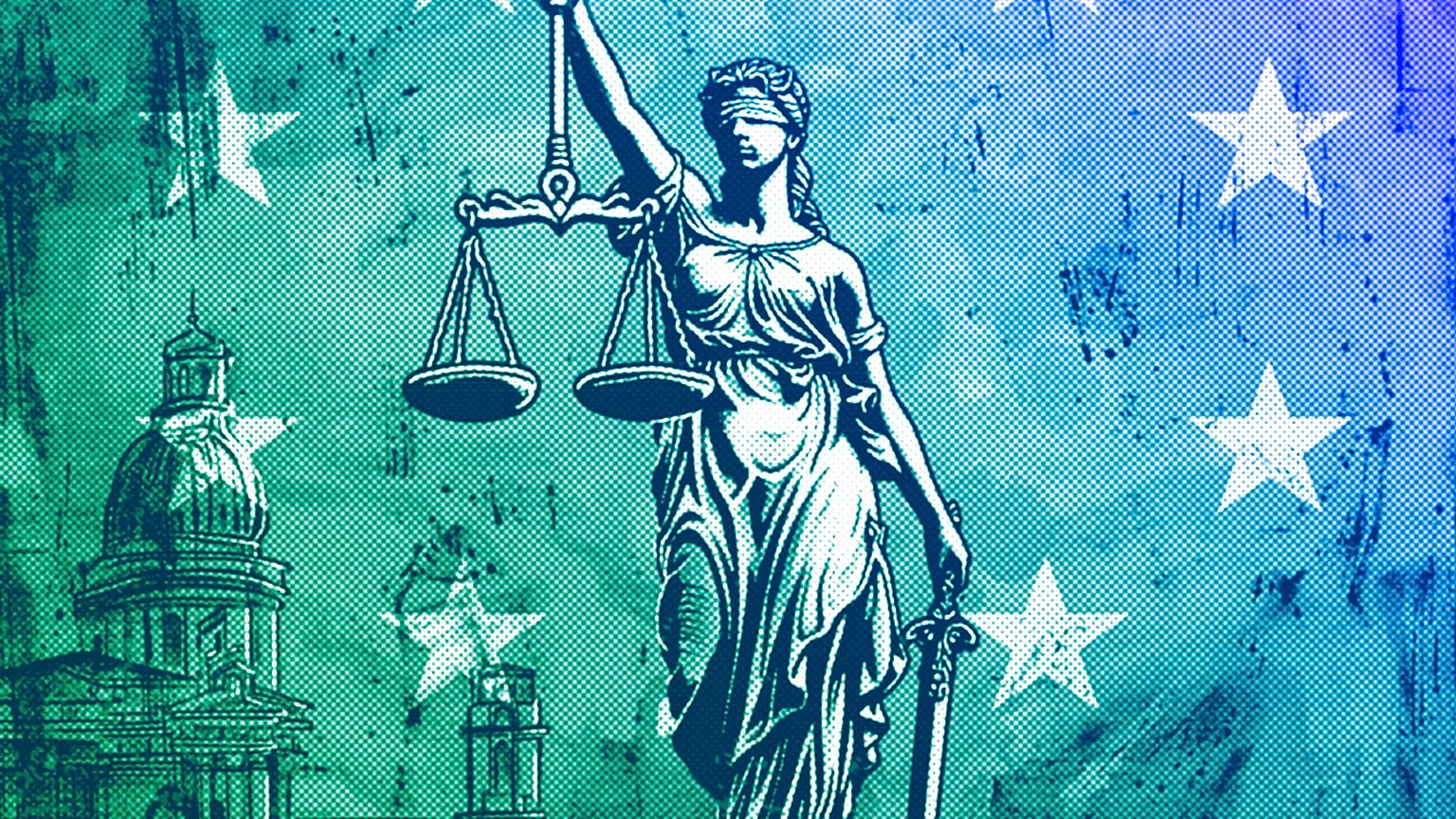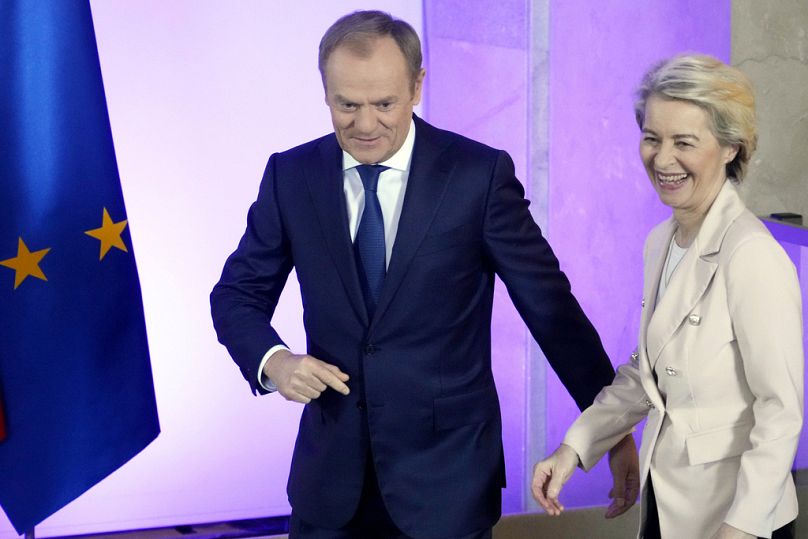Even in countries with strong democratic traditions, there are serious threats to the institutions, processes and freedoms that underpin free and open societies. And if left unchecked, the damage to democracy may be all but impossible to reverse, Eleanor Brooks and Jonathan Day write.
Despite its importance to a free and democratic society, the rule of law situation is deteriorating across the EU. Even in countries with strong democratic traditions,
 ADVERTISEMENT
ADVERTISEMENT
 ADVERTISEMENT
ADVERTISEMENT
We expect our leaders to listen to our opinions and follow the rules the same as everyone else. This is what the rule of law is all about, and it’s the foundation of our democracies.
But the combination of declining democratic standards and the prospect of far-right parties entering government in Europe threatens to weaken this democratic foundation, as we’re already witnessing.
As Liberties’ Rule of Law Report 2024 details, rule of law violations were observed in all corners of the EU. It isn’t too late to reverse this trend, but the EU must act urgently before rule of law decay becomes permanent.
The overarching view is underwhelming
The report points to an overarching trend of governments shrugging off democratic oversight, posing varying degrees of threat to democracy in different countries.
In well-established democracies, such as Belgium, France, Germany and the Netherlands, these typically amounted to violations that do not pose an existential threat to democracy.
Authorities in these countries may consistently restrict or detain climate activists or abuse surveillance technology during protests, for example. But none of their governments resorted to rewriting laws or overtly violating the system of checks and balances.
In countries less resistant to democratic backsliding, such as Greece, the accumulation of persistent rule of law breaches across different areas risks snowballing into a systemic issue.
And there is growing concern over Italy, where last year the situation deteriorated in nearly all areas, and only anti-corruption showed progress. If these countries continue down this path, crack by crack the rule of law — the foundation of free democracy — will soon crumble.
This is the case in Hungary, where the ruling party continues to intentionally dismantle democratic structures and the rule of law to cement their grip on power. Little changed in 2023, and it’s too early to say if the reforms implemented to free up EU funding will actually reverse democratic backsliding.
In Slovakia, the new government has already initiated legislation via fast-track procedures, abolished a main prosecutorial body, and squeezed the funding of public service media.
Small breaches can become endemic — and irreversible
Over the five years Liberties has been conducting our annual rule of law monitoring, we've witnessed the steady downward trajectory of democracy in Europe.
This trend is the result of governments deliberately disregarding rule of law principles, including countries with strong democratic records.
Particularly brazen examples include the misuse of emergency measures to push through unpopular legislation, as seen in France’s enactment of pension reforms, or Belgium’s refusal to comply with court decisions in asylum and border control cases.
These seemingly small, isolated rule of law breaches are often intended to achieve a particular outcome rather than chip away at democratic structures.
Nevertheless, they constitute a willingness by governments to selectively eschew democratic oversight. This may not immediately threaten democratic stability, but not reacting to rule of law backsliding by well-intentioned governments serves to normalise it, making it all but impossible to reverse should an extremist government take power.
We are already witnessing this in Sweden. In 2021, serious rule of law violations were only reported regarding media freedom; with a right-wing government in power since 2022, we now observe breaches in checks and balances, the justice system, media freedom, civic space, and human rights protections — only in anti-corruption is the situation not regressing.
And in Poland, the new government is grappling with the consequences of letting these small breaches become endemic.
Donald Tusk’s coalition has promised to correct the rule of law backsliding that defined its predecessor, but there is concern that the damage can’t easily be undone without violating the rule of law in the process — one which will be long and requires the creation of an “action plan”.
The EU must not sit on its hands
It shouldn’t have to come to that. The EU already has a range of tools to protect the rule of law and should use them readily. Seeing the rule of law conditionality mechanism, modelled on a proposal we developed, used against Hungary, was a positive development.
The EU should consider launching systemic infringement proceedings where there are multiple rule of law violations, utilise an expedited procedure and request interim measures.
The European Commission must also show strong oversight of member states’ efforts to follow EU regulations.
The European Media Freedom Act, the Anti-SLAPP Directive and the AI Act are the latest pieces of EU legislation that, while far from perfect, can be used to improve the rule of law situation in member states and help prevent isolated rule of law violations from becoming systemic rot.
Part of what makes democracy beautiful is that it can only flourish when those in power live by the same rules as everyone else.
This makes it vulnerable to bad actors, but this inherent fragility is also its greatest strength.
A robust rule of law protects democracy’s weaknesses from being exploited, while still preserving its essential democratic nature.
Eleanor Brooks is a communications officer and Jonathan Day is an advocacy officer at Liberties, a Berlin-based human rights organisation.
At Euronews, we believe all views matter. Contact us at view@euronews.com to send pitches or submissions and be part of the conversation.
















